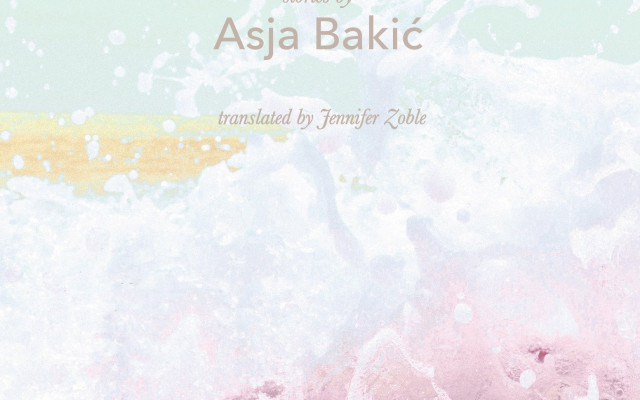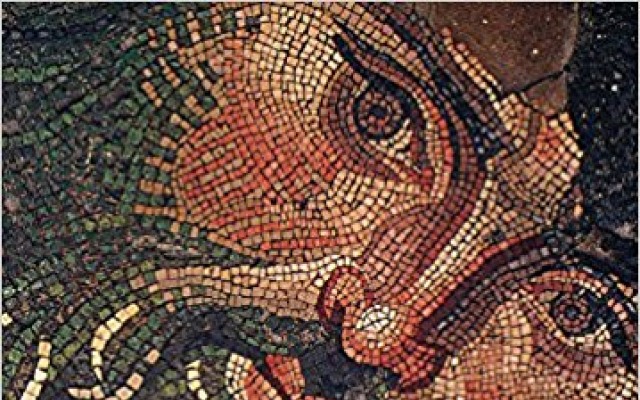Review: Pyre

Pyre
By Perumal Murugan, translated from the Tamil by Anirudhdhan Vasudevan
Grove Atlantic, Black Cat, 224 pp., $11.59 (paper)
Review by Vandana Nair
For most young girls growing up in India, caste is an unexplained convention handed down by sensible mothers. They are constantly cautioned to choose a life partner within their immediate community, confined to their existing social order, lest their lives become too complicated for their own good. But what kind of love listens to cautionary tales or reason? From Thisbe to Juliet to Laila, haven’t young women left the relative safety of their homes to follow their hearts on the promise of a life-changing, forbidden love?
Perumal Murugan’s Pyre, translated from the Tamil by Anirudhdhan Vasudevan, begins with just such a scenario when young Saroja enters into an inter-caste marriage with her lover Kumaresan. She follows him to his village, Kattupatti, hiding the knowledge that she belongs to a caste different from the dominant caste of the village. The couple’s hopes of settling into a romantic idyll wither away as the villagers welcome Saroja with suspicion, noticing the difference between Kumaresan’s dark skin and hers, which is fair. Although her caste is never named in the book, the subtext that she is from a lower caste shrouds the prose, and the difference is enough for her to be cast aside. Pure, innocent love as the most potent, unifying life force being violently extinguished to uphold the honor of the dominant caste—is the underlying theme of Murugan’s plot, mostly linear, with a few tender flashbacks of the lovers’ courtship deftly interwoven to provide relief in an otherwise brutal narrative.
Right from the first edgy moment as Saroja steps off the bus to set foot into Kumaresan’s sun-scorched, inhospitable Kattupatti, the reader’s rational mind fears for her well-being along with applauding her courage for leaving her familiar, city life behind. No one can portray adolescent love blended with primitive sexual longing with more purity than Murugan: even as the couple walks in the barren, scorching landscape of the village together to face possible hostility from its inhabitants, all Kumaresan can focus on is Saroja’s honey-gold face, all he longs for is to tuck a stray lock of hair behind her ear. Oddly, the couple’s blind faith in each other predicts the trajectory of their intense, glorious love with its equivalent risk of crippling hurt. As Saroja cuts her feet on rocks, defends herself against lustful gazes and nasty accusations, and squats for her most basic ablutions between thorny karuvelum bushes, it’s like the unforgiving rocky setting around her is testing her mettle. While Kumaresan deems his intimate home setting of a group of thatched huts sitting atop a rock with trees for companions ideal for hiding his lady love from the pointed inquisitions of the villagers, for the town-bred Saroja, habituated to living amongst throngs of people, the isolated environment foreshadows her discarded status.
Even though Pyre was longlisted for the Booker prize for the year 2023, Murugan has often been judged for his preoccupation with the pastoral by his English-language-educated Indian readers, as his detailed rural settings paint an almost Gandhian picture of India’s villages, where the alleged soul of the country supposedly dwells. However, his lasting intention is to reveal hidden paradoxes within these environments and document the arduous, everyday lives of India’s predominantly rural population. Whether Murugan talks about caste violence, class differences between the rich and poor, or the backbreaking labor status of women in deeply patriarchal Hindu communities, his plainspoken language is as instinctual and uninhibited as the environment it sprouts from.
What makes one believe in the authenticity of Murugan’s physical and emotional worlds is that he dwells in one such agricultural town in southern India. He writes in his mother tongue, Tamil, and his characters are ordinary villagers who have sprung from his real-lived experiences, so much so that their physical descriptions and expressions are likened to the farm animals they raise. In Pyre, Saroja attributes livestock characteristics to the people she meets, though she keeps these appraisals in her head, as she is too afraid to voice her distrust. So, Murugan’s rootedness to his land truly surfaces when he draws on his landscape, livestock, and climate in this way, showing how animal behavior emerges in ordinary villagers when they are outraged by a break of draconian tradition:
By the time they returned home, the day had ended and an ashen darkness had started to spread everywhere. Her mother-in-law too had arrived just then and was tethering the goats.
“The entire village is laughing at us, and you want to go about, parading yourselves!” she said spitefully, and punched a goat in its jaw. The animal bleated in pain. Saroja instinctively touched her own cheek.
In his typical plainspoken way, Perumal Murugan regards a translation of his work to be a process when his book ‘goes to English.’ Working with Anirudhdh Vasudevan on Pyre was instinctual for him, as Vasudevan has translated five of his eleven novels, the first being the controversial One Part Woman, which depicts a traditional ritual that outraged conservatives of a specific caste in South India. When Murugan wrote about the rage of the villagers in Pyre, who cannot palate the idea of a union between two people belonging to different castes for the sake of racial purity, little did he know that he would face a similar angry mob in 2015, wanting to set fire to copies of One Part Woman and silence him. His prose runs on a gamut of intense emotions, and in Vasudevan’s words, “creating a sensitive, supple English translation without losing the lilts and sounds of the Tamil language” was his greatest challenge in Pyre, despite the story being more contemporary than One Part Woman. In a country where the taste of water changes every mile, and dialects every four miles, it is not surprising that Saroja’s urban variation of Tamil differed from Kumaresan’s rural Kongu dialect. Those slight variations might have been too stubborn to translate.
In his interview on the Booker Prizes website, Perumal Murugan mentions that Pyre as a title is not an exact translation of the Tamil title Pookuzhi, which is a euphemism for replacing an inauspicious word with an auspicious one. Pookuzhi carries a ‘zh’ voiced retroflex approximant unique to the Tamil and Malayalam languages, and its thematic meaning stems from a religious fire-walking practice. In rural parts of South India, people often take vows to a deity, and to fulfill their promise, they need to walk barefoot on a firepit in the temple courtyard. Interestingly, this sacred place upon which the embers simmer is called Pookuzhi, which literally translates to flower pit (Poo meaning flowers), and not a fire pit, because the devotees believe that by the grace of their goddess, walking on fire embers would feel like walking on flower petals. Ironically, even though Saroja and Kumaresan pray for better times, they find strictures and discrimination instead of flowers as Pyre hurtles towards a climactic burning.
While Vasudevan was not happy with a direct title like Pyre, Murugan’s trust in his translator’s expertise and calm acceptance that “some aspects become finer in translation, and some aspects are lost” helped them to go with the English title. Pyre befits this work, marking its direct, speech-influenced style, which hits hard in places where the hatred is most palpable, the insults most dehumanizing. Vasudevan’s sensitive translation blazes brightest in the unadorned dialogues that shed light on the abuse faced by Saroja and Kumaresan, and readers familiar with regional Indian dialects would shrink a little in their skin along with the young lovers as a parallel pattern of similar, cruel phrases common to sister Indian languages scribble themselves on their minds.
“Mark my words: All this mixing might work with soda colours, but it doesn’t in life.”
Pyre is a translation done with sensitivity for the taboo phenomenon of intolerance—what others may do, eat, touch; how they live, dress; whom they choose to love, marry, mix their blood with—it reveals, and Vasudevan’s measured use of simple English to do justice to Murugan’s spare Tamil Kongu prose is a carefully considered decision.
With haunting simplicity, Murugan uses Kumaresan’s thoughts to strike back at the vigilantes of caste, class and color to leave searing questions in the readers’ minds, “Can’t I marry the woman I love? She loves me with all her life. I love her the same way. Why is everyone driving us away?”
_
Vandana Nair grew up in India, believing that relationships need to be nurtured from their roots. Living away from her birth country has given her the essential distance to mine stories from her cultural home and heritage. Her debut novel is Punch, and she has contributed a short story, The Signature, to The Knot Wound Round Your Finger (Bell Press), an anthology on memory, history and inheritance, which the publishers nominated for a 2021 Pushcart Prize. https://twitter.com/nairvands




